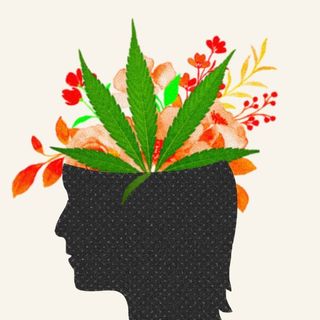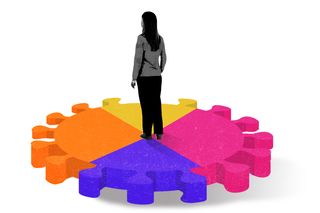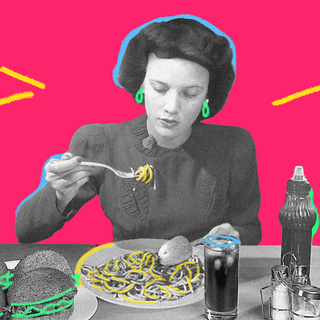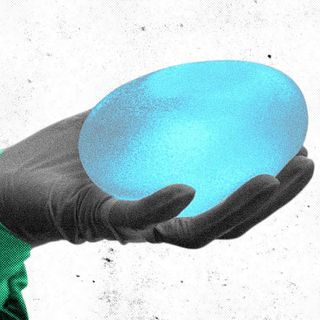
Covid19 May Have Made People Shy, Moody, and Less Responsible: Study
“Personality, while more consistent than changing, is not fixed and can respond to changes in the environment,” the researchers said.

There are two timelines we’re living in: Before Pandemic (BP) and During Pandemic (DP). 30 months of survival in the second timeline and one can say with certainty that we aren’t who we used to be. What changed and how? These are hard questions to ask, harder to answer, but the perspectives that once found space in BP conclusively feel alien.
Perhaps, it could be because some fundamental personality traits within us changed. Young adults apparently don’t trust enough, cooperate less, and are less restrained than before, according to new research published in PLOS Oneon Wednesday.
Proving the link between collective stressful events — such as health crises and climate disasters — and changes in personality is an arduous task. So far, there isn’t any strong causal evidence around say, hurricanes, changing people’s personalities.
But the pandemic was different. “The pandemic was an unprecedented opportunity to see how a collective stressful event may impact personality,” saidlead study author Angelina Sutin, a professor of medicine at Florida State University. “Younger adults became moodier and more prone to stress, less co-operative and trusting, and less restrained and responsible.” The personality shifts were significant enough to equal about a decade worth of change, the study suggested.
The researchers looked at about 7,000 adults in the U.S., between the ages of 18 and 109. It is hard to restrict personality into a caged definition, but for the purpose of this study, the researchers gave a test measuring five markers: neuroticism, extraversion, openness, agreeableness, and conscientiousness. During the second half of the pandemic, people were reportedly less open to new experiences, and they noted a decline in conscientiousness and extraversion too. To put it simply: “…younger adults became moodier and more prone to stress, less co-operative and trusting, and less restrained and responsible.”
There’s a possible reason why young adults, in particular, were hit hardest. Wiebke Bleidorn, a psychologist at the University of Zurich, who was not involved in the research, found this collective experience of personality changes curious. “It’s interesting to see this average effect, despite the fact that people must deal with the things going on quite differently,” he said. “One interpretation is that not having the normal formative experiences put development on hold.” There’s a laundry list of things on hold that are ideally supposed to mark their transition into adulthood: achieving financial independence, building careers, cementing relationships. They are the “new lost generation,” because no one has quite come of age, not least in the way they envisioned it.
“Personality, while more consistent than changing, is not fixed and can respond to changes in the environment,” said Brent Roberts, a professor of psychology at the University of Illinois at Urbana-Champaign, who was also part of the study.
Related on The Swaddle:
Has the Pandemic Made Us Less Interesting Than We Used to Be?
Are these changes permanent? No one quite knows yet. But one hypothesis as to why personality changes were observed in young people is that personality is generally more malleable and unsteady during this period. Traits like extraversion or conscientiousness might become more consistent with time (what’s also called the cumulative continuity principle), but empirical evidence for this idea of permanent personality markers is still feeble.
Another reason, and a more plausible one, is how fundamentally uncertainty and fear can change people. “Social norms have certainly changed in the period of covid. Grief and trauma have a lot to do with this switch,” Shubhangi More, a counseling psychologist, told The Swaddle last year, explaining why people felt a pang of dullness within themselves. These are new life experiences altogether for 20- and 30-somethings, ones that are as much about hardships, resilience, and hope as they are about shared grief and loss.
The researchers agree that the disruption to our daily programming certainly plays a part. “The pandemic disrupted what young adults are supposed to be doing. They’re supposed to be in school or starting their careers or transitioning into careers. They’re supposed to be going out and forming relationships,” Sutin added.
How does something like reduced conscientiousness, or less care and diligence, impact people? “Higher levels of conscientiousness generally result in more successful aging…” said David A. Merrill, a psychiatrist. “More conscientious individuals may take better care of their own health, and those around them, which may promote healthy aging.”
In theory, an increased neuroticism and lower conscientiousness would mean people are more negligent of mental and physical health. And Roberts noted that “given the modest effect sizes, these effects would be too subtle to see at the level of an individual and would more likely only be seen in aggregate, population-level analyses such as those done by epidemiologists.”
Related on The Swaddle:
The Pandemic Has Changed Intimacy For Good
There are some limitations to using personality tests to define people’s character. Arguably, the human personality is an amorphous blob of many things, a curious interaction of nature and nurture, such that “inherited traits encoded in our DNA are influenced by our social environment and modified during early developmental experiences,” explained Sharon Guynup. This personality is the sum product of behaviors and habits and traits that collectively determine how we think, feel, and behave. A questionnaire that uses the Big 5 traits may not be enough to forecast shifts in collective thinking. Plus, the biggest criticism of the traits is they are too broad; may not apply to a demographic outside the western, educated, industrialized, rich, and democratic (WEIRD) populations, and determining is a process fraught with biases.
It helps to look at biology in this scenario. There is some research to show brain injuries and diseases, like Alzheimer’s and Parkinson’s, change our brain anatomy, and by extension, a part of our personalities. In 1906, a researcher looked at Auguste D., a 55-year-old woman, who in the years before her death had suffered a profound loss of memory and was experiencing paranoia. Researcher Alois Alzheimer prove that her brain shrunk due to Alzheimer’s disease, by looking at the autopsy. This was a milestone discovery that further linked changes in the brain to changes in one’s personality.
What’s common between diseases like Alzheimer’s and Covid19 is the inflammation found in the brain. A growing body of research is shedding light on this link, exploring how inflammatory cytokine proteins trigger an immune response that can permanently change (or damage) brain cells. Another spectrum of research is finding changes in how people behave; people report feeling more impulsive, and doing irrational things, along with experiencing sleep problems, depression, and anxiety. Long Covid in itself is little understood by science despite its persistent symptoms, especially in how it impacting people’s mental well-being.
There is so much about the brain, and our behaviors, we still don’t understand –– in addition, we’re still learning about how the pandemic has impacted our health for the long haul. It raises more questions: Are our personality markers evolving, or will some parts remain the same? At least we know they are fluctuating for now, and more malleable than we realize. As More said, “I hope people can accept themselves even once the pandemic is over.”
Saumya Kalia is an Associate Editor at The Swaddle. Her journalism and writing explore issues of social justice, digital sub-cultures, media ecosystem, literature, and memory as they cut across socio-cultural periods. You can reach her at @Saumya_Kalia.
Related


All You Need to Know About Binge Eating Disorder
